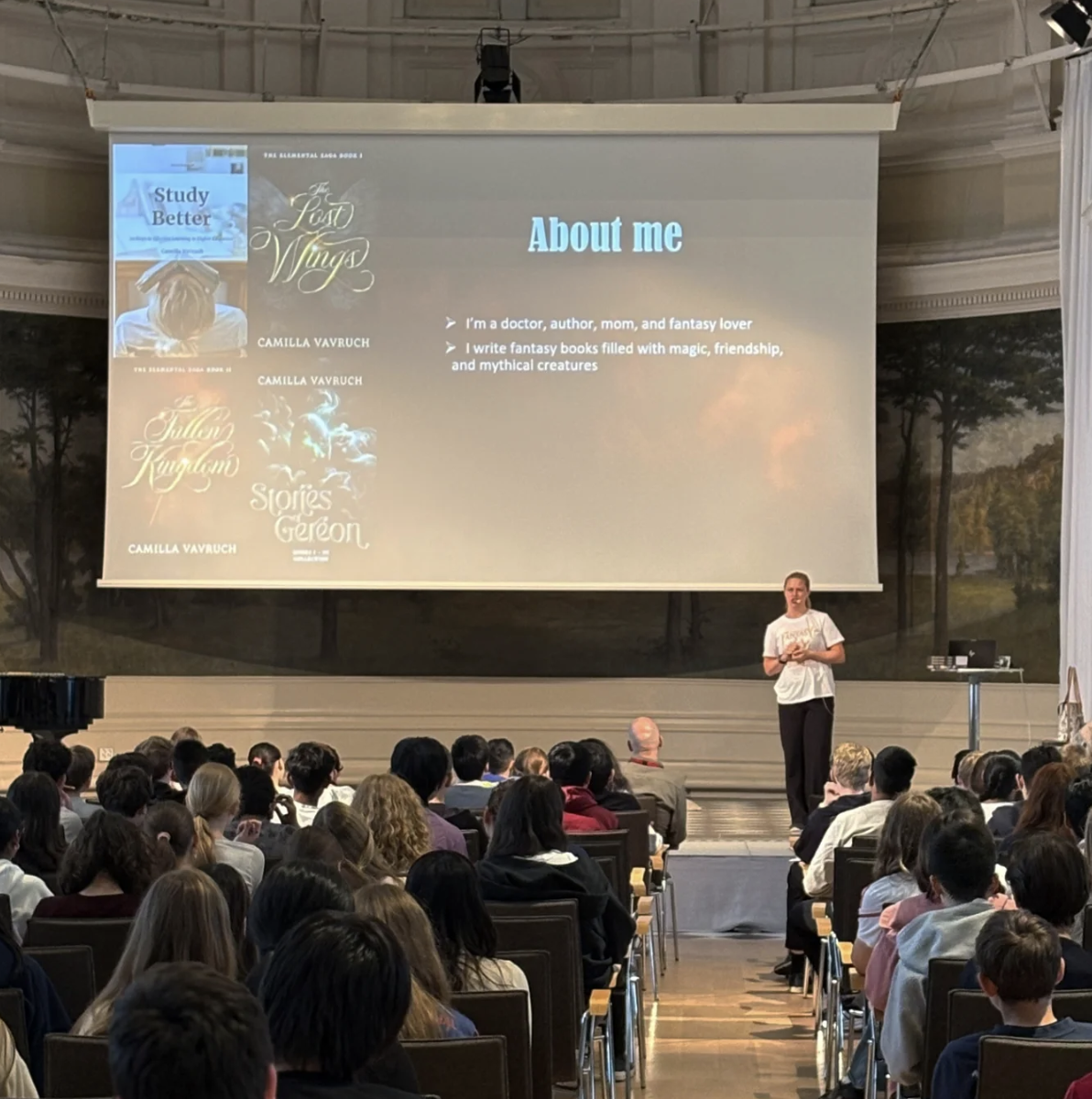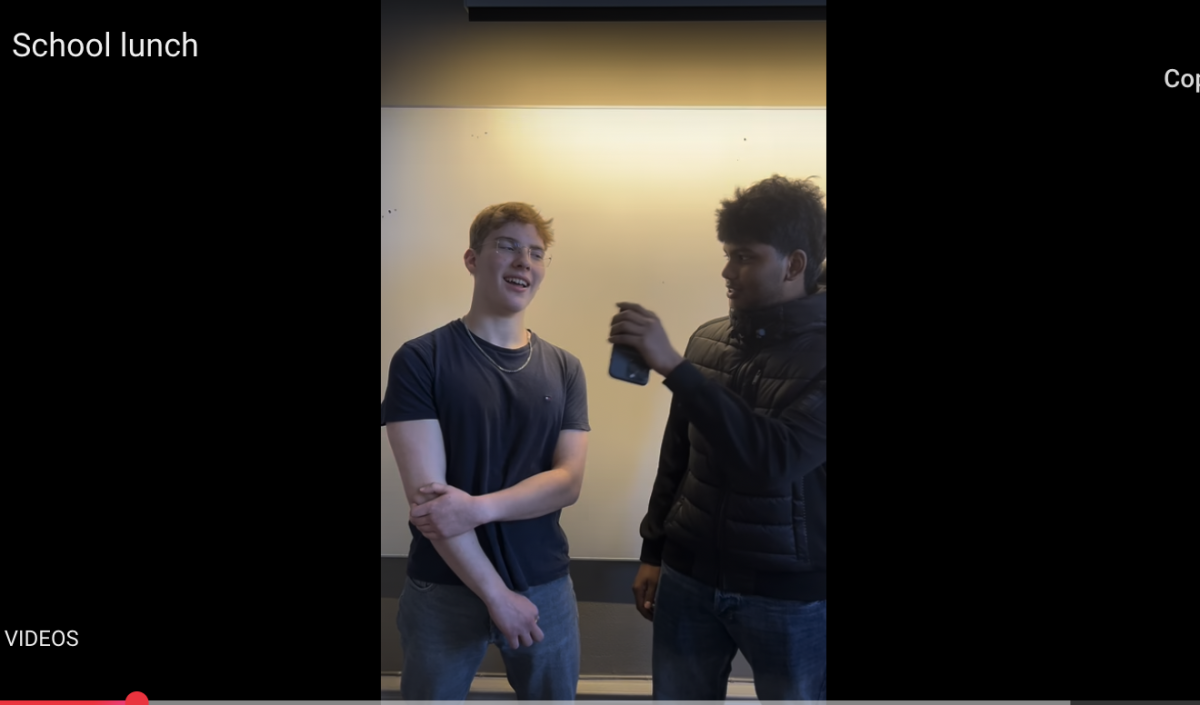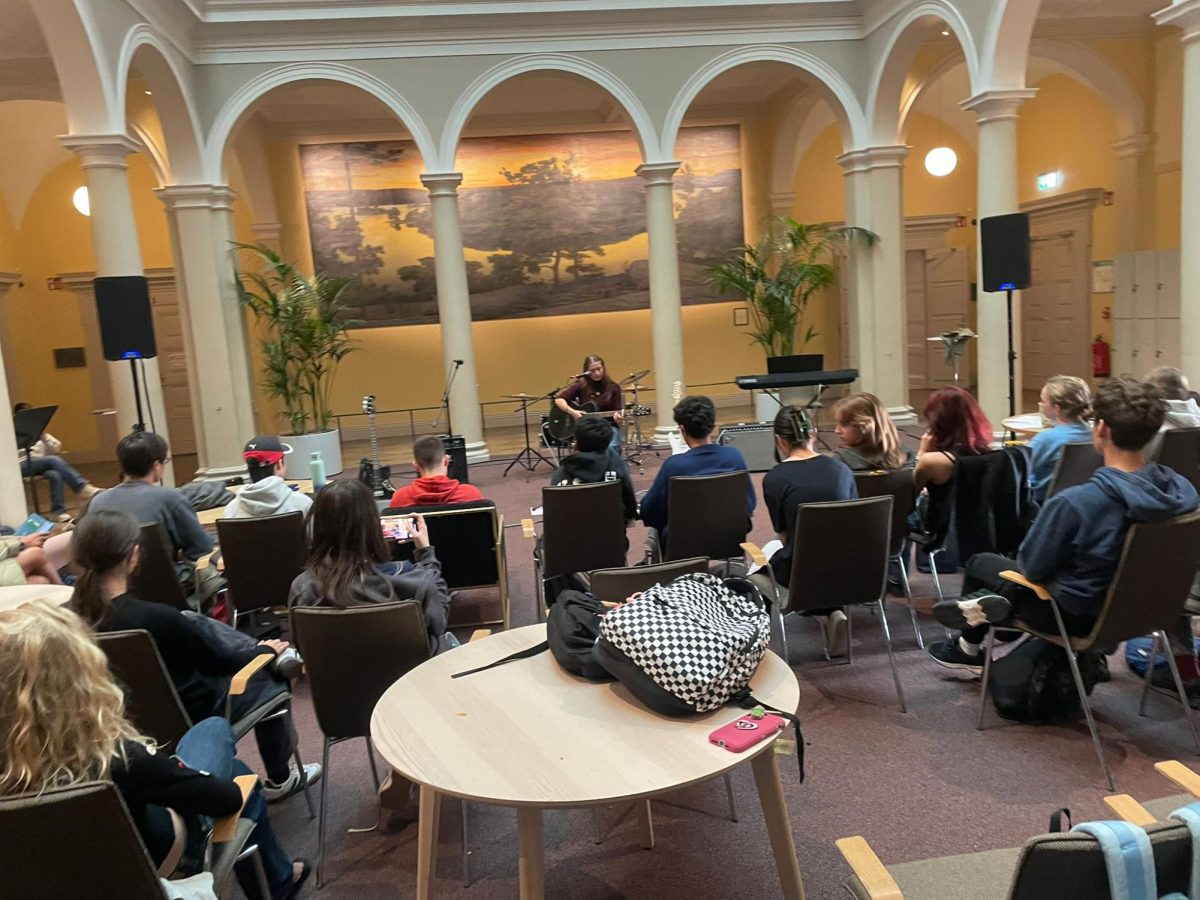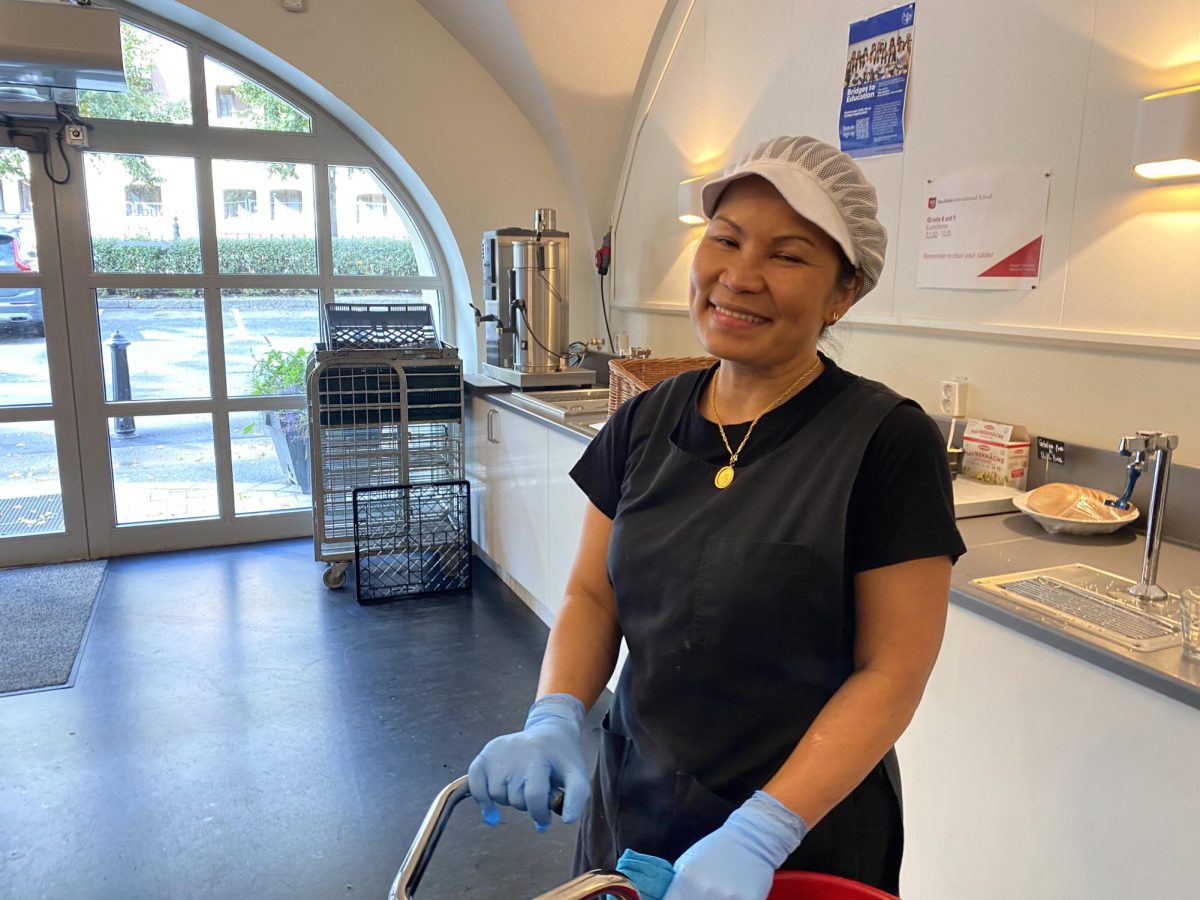What is the importance of having a diversity of characters in novels? This was the question that author Camilla Vavruch came to talk to the 10th and 11th graders about a couple of weeks ago.
Camilla Vavruch is by day a doctor at a healthcare centre living here in Sweden, and in her free time is a fantasy author who loves all things dragons and magic. She’s written 9 fantasy books, 4 of them belonging to the series ‘The Elemental Saga’ and the other 5 part of the series ‘Stories of Gereon’.
While she was here, she talked to students about the importance of having characters that represent all types of people and identities. This means having characters from diverse nationalities, with different sexualities, body types, ages and cultures, that have depth and aren’t shallow. She emphasises the importance of having characters that any type of reader can see themselves in, to abolish stereotypes in books that can be discriminatory to a variety of people.
Through various examples, She explained the importance of having a variety of characters from different backgrounds that have a prominent personality despite their anti-stereotypical qualities to increase diversity in books.
Camilla Vavaruch also gave students a task to do, where they had to create their own fantasy characters which had their own anti-stereotypical qualities. Students really enjoyed this task and shared amongst others their great ideas for stories they would write. The creative ideas of the students ranged from moms with superpowers to mermaids in a dystopian society.
Keith, one of our Quirky Quibbler editors, had the chance to share his fantasy story idea with the students, for which he was rewarded with the first book in Camilla Vavaruch’s series ‘The Elemental Saga’, called ‘The Lost Wings’. Read below to find out what Keith’s story was about.
I was offered an opportunity to present my own character I brainstormed in a brief amount of time. It was very successful and I was able to present a complex character taking into account fantasy elements. I constructed a character, that his persona was based on a vague philosophical context and not on a cultural background. Instead of delving into the physical appearances I defined a character based on their internal conflict and their preservation of identity.
Towards the end of the experience, students were given one of Camilla Vavaruch’s bookmarks. From the students’ buzz of excitement in leaving the Aula, it was clear that everyone enjoyed the talk very much. We thank Camilla Vavaruch for coming and talking to the students about this important issue that needs to be addressed in books.








